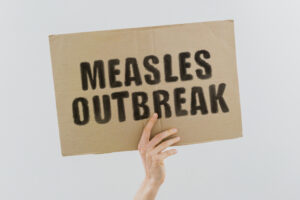Listeria is, once again, in the news. But this time, it’s on a global scale. What’s happening? What does it mean to you and what can we learn from the issues in other countries? What’s happening. In the largest ever recorded incident of its kind, a South Africa Listeria outbreak has killed 180 people since January. As a result of the outbreak, South Africa banned processed meat, and recalled dairy products, fruit and vegetables. The health ministry has stated that the outbreak is linked to polony (a ready-to-eat sausage) produced in two Enterprise facilities in the region. However, those businesses parent company, Tiger Brands, initially denied that there was evidence linking its products to the outbreak, then, according to South Africa’s Eye Witness News, said the company “would not apologize unless there is proof of negligence.” A class action suit has now been filed against Tiger Brands on behalf of the families of people who died. Meanwhile, in Australia, four people have died from a Listeria-contaminated melon outbreak for which the source was linked to a farm in New South Wales. And in Brazil, labs and federal inspectors are being implicated in the falsification of pathogen tests … with some theorizing that a deboned chicken product imported from Brazil by South Africa could be behind its Listeria outbreak. In the U.S., Listeria continues to be a very hot topic with regulators, with FDA issuing draft guidance on Control of Listeria monocytogenes in RTE foods” in February; continuing its extensive environmental sampling in inspections; and focusing on new policies to support “efficient and effective” recalls (at least in part in response to the OIG report that FDA’s recall procedures were anything but that.) And with Listeria continuing to be an issue with USDA-regulated foods (as shown in the following table), it’s unlikely that any less emphasis is being put on pathogen control by that agency. Listeria-attributed recalls of the last 10 years (USDA) What does it mean to you and what can we learn? Since the beginning of 2017, nearly 20 of our TAG newsletters have included a focus on Listeria. These have ranged from FDA’s “swab-a-thons” to the Where, when, and how of environmental sampling to How far is too far in detection and recall and, finally, just as we are discussing in this newsletter: Lm in RTE Foods: A Continuing Regulatory Focus. With all that is needed to keep food safety at its best within your facility, it can be all too easy to lose focus on the outside world. But we do import and export ingredients and products with the rest of the world and need to stay up-to-date on all that is happening. Are you aware of emerging issues and trends? Do you get any ingredients from Brazil? Have you imported melon or other fresh fruits? Are your internal and external lab results verified? Is your supply-chain program and incoming goods testing sufficient to detect issues? Do you have a thorough environmental sampling program? To look at the even bigger picture: Would you be prepared if your product were to be implicated in a global incident – or would you deny and disclaim responsibility? What impact would a worldwide incident and recall of your product cost you? … in public health impact, economics, and brand reputation. If the questions, incident citations, and number of article links in this newsletter haven’t convinced you of the seriousness of Listeria contamination and the importance of ensuring that you have a thorough prevention and detection program, I’d like to remind everyone reading this newsletter about a statement I made in a June 2016 newsletter focused on the DOJ’s involvement in food safety investigations — and convictions. It is just as apt now as our global world gets ever smaller and a contaminated food you produce today could be linked to an illness – or death – anywhere in the world. I stated, and I reiterate: It is more important than ever to make every effort to look for food safety problems and take them seriously when you find them. So, to give a specific example, set up a solid environmental monitoring program and be sure to follow up thoroughly on positive results when you find them. Failing to do that can land you in a bunch of trouble if at some point your products are linked to an outbreak. Today, I would add more recommendations including re iterating the regulatory focus on Listeria that I mentioned earlier. US regulators are going to continue to be cautions around Listeria risks and food facilities at all levels in the supply chain. This includes restaurants and retail who need to continue to give Listeria risk reduction the focus and resources that it needs. If you are reading this and are not sure if you are where you should be, contact TAG and let us help you figure out where your vulnerabilities are and how to best to protect your brand and bottom line. About The Acheson Group (TAG) Led by Former FDA Associate Commissioner for Foods Dr. David Acheson, TAG is a food safety consulting group that provides guidance and expertise worldwide for companies throughout the food supply chain. With in-depth industry knowledge combined with real-world experience, TAG’s team of food safety experts help companies more effectively mitigate risk, improve operational efficiencies, and ensure regulatory and standards compliance. www.AchesonGroup.com





